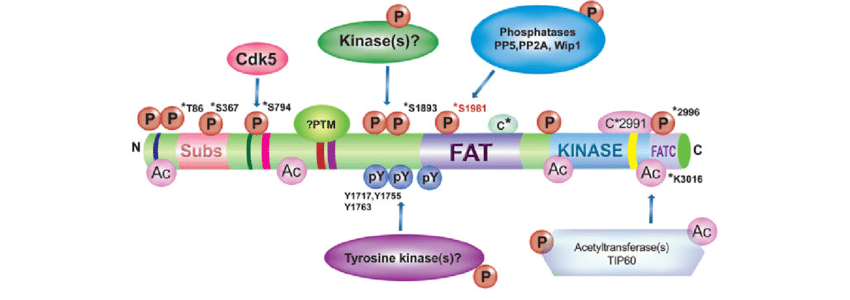Identification of ATM Protein Kinase Phosphorylation
ATM (ataxia-telangiectasia mutated) protein kinase is a key regulator of cellular responses to DNA damage and oxidative stress. DNA damage triggers complex cascade of signaling events leading to numerous posttranslational modification on multitude of proteins.
Understanding the regulation of ATM kinase is therefore critical not only for understanding the human genetic disorder ataxia-telangiectasia and potential treatment strategies, but essential for deciphering physiological responses of cells to stress.

These responses play an important role in carcinogenesis, neurodegeneration, and aging. We focus here on the identification of DNA damage inducible ATM phosphorylation sites to understand the importance of autophosphorylation in the mechanism of ATM kinase activation.
We demonstrate the utility of using immunoprecipitated ATM in quantitative LC-MS/MS workflow with stable isotope dimethyl labeling of ATM peptides for identification of phosphorylation sites.
